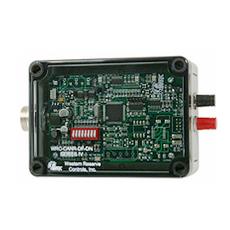Product Profile of Fiber-Optic CAN Bus Extenders
Fiber-Optic CAN Bus Extenders boost signal levels, allowing longer cable lengths, longer trunk lines and longer drop lines without sacrificing network speed. CAN Bus Extenders permit maximum network speed and throughput on CAN, J1939, or DeviceNet network devices, resulting in better control of the process. CAN Bus Extenders require no configuration when used in DeviceNet applications as they are configured for autobaud operation. Fiber-Optic CAN Bus Extenders enables the creation of star, tree and other non-linear network topologies which increases flexibility in system design and reduces installation costs.
Key Features of Fiber-Optic CAN Bus Extenders
- Expands the usable applications for DeviceNet, J1939, SDS, and other CAN V2.0, Part A and Part B compatible CAN bus systems
- Enables the creation of star, tree and other non-linear network topologies which increases flexibility in system design and reduces installation costs
- Works with both trunk lines and drop lines
- Allows operation at higher speeds for specific distances
- Fiber-optics provide superior electrical interference protection versus copper cables
- Operates at 9.6K to 1M fixed baud for J1939 or CAN bus networks
- Extender operation is transparent to Master and Slave devices
- Powered from the CAN bus network
- Sealed NEMA-4X enclosure
- Standard round, mini-style connector with male pins for copper cable
- Standard Fiber Optic ST female connector for use with multi-mode fiber
- Standard CAN chips manage CAN bus error detection and handle message bus arbitration
- Less than 900 µns; sec latency
- Termination resistor built in on the CAN bus interfaces
- Two identical WRC-CANR-DF units are included in an order kit and both are required for each application
